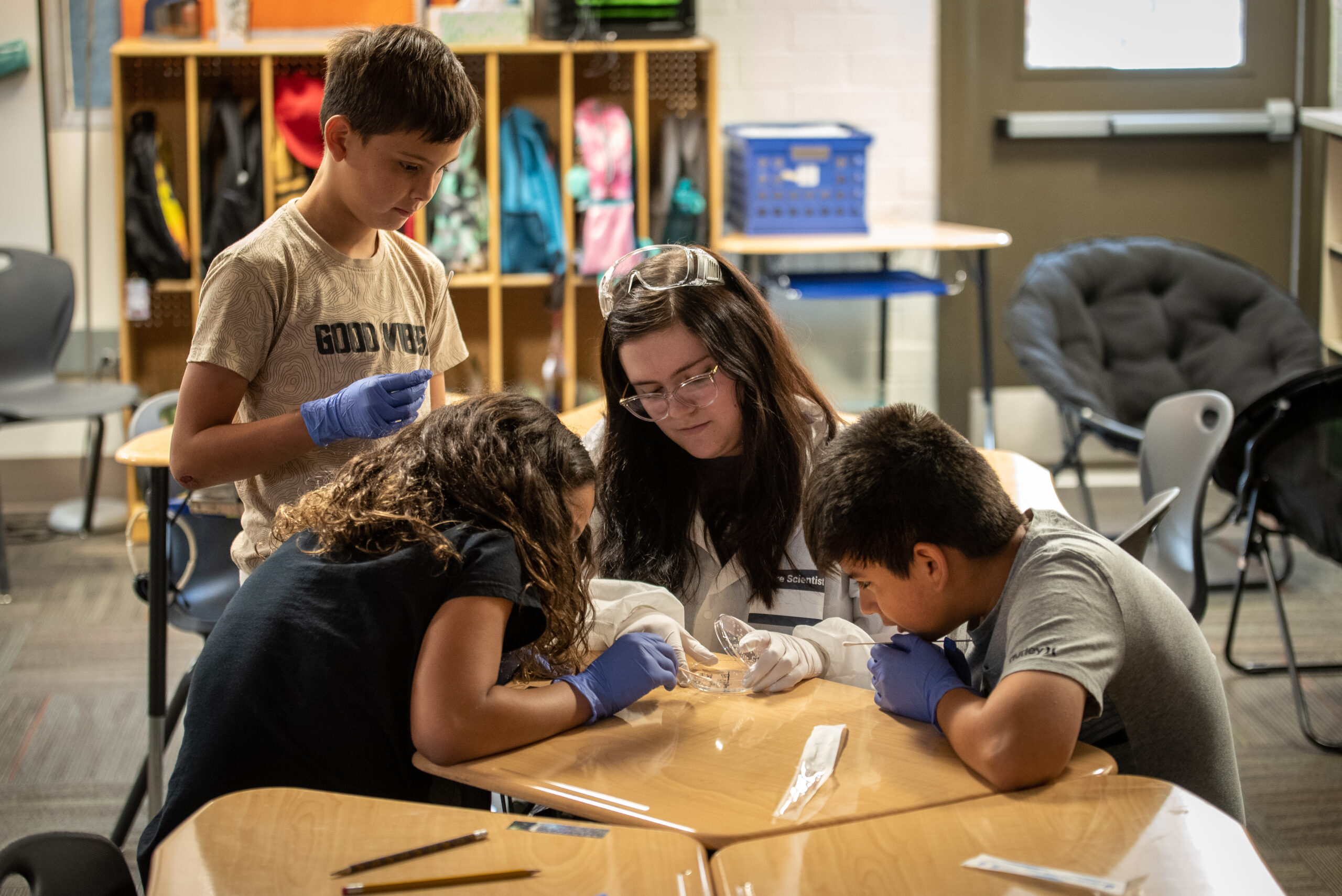High School bioscience students from the Innovation Center led a microbial inquiry lab for 5th graders at Indian Peaks Elementary in early October. Together they conducted hands-on experiments to study the presence and behavior of microorganisms on various surfaces.
A microbial lab is a specialized laboratory where students explore and cultivate tiny living organisms known as microbes, especially bacteria. The primary objective of the lab is to teach students the scientific method and provide them with a solid foundation in microbiology techniques.
Jayme Sneider, Biosciences Teacher at the Innovation Center, is dedicated to making science accessible to all, which is why she developed a program to bring her Intro to Biotechnology students and 5th graders together for a microbial inquiry lab. “The main focus of this collaboration is to provide elementary students with an opportunity to engage in hands-on scientific exploration, guided by our high school students,” said Sneider. “It’s all about fostering a love for science at a young age.”
Under the guidance of the high school students, the fifth graders began the experiment by swabbing various high-touch surfaces like doorknobs and countertops. Students placed their samples in incubators, creating the ideal conditions for bacterial growth. They monitored the cultures over several days to draw conclusions from their experiments. Their goal was to identify the types of microbes inhabiting these surfaces and investigate how factors like hand sanitizer and gloves affect microbial growth. They also learned essential biotech skills, including the delicate technique of pouring agar plates, which serve as food for bacteria.
One of the most important elements of the microbial lab was the opportunity for high school students to take on roles as mentors and educators for their younger peers. They transitioned from being the learners to becoming instructors, utilizing the equipment they had prepared to guide elementary students through the scientific process. “I like the technicality and experimental aspect of the lab and helping the 5th graders learn new skills,” shared Grace Fernandez, senior at Skyline High School.
“The feedback from my high school students was really funny because they said that the elementary school students kept asking them, like, how’d you get that job? How is it working as a scientist? It made my high school students feel really special and important, and it gave them a sense of looking ahead towards their career pathway,” shared Sneider.
The highlight of the project was when the high school students became the teachers, passing on their knowledge to the fifth graders. This shift allowed the high school students to see the purpose of their work and feel a sense of importance in educating others, quickly adapting to their role as mentors and relishing the opportunity to answer a wide range of questions, not just limited to science. This project also checked several boxes in their journey toward biotech credentials. They learned essential lab techniques, honed their skills, and taught the younger students, further deepening their understanding of the subject matter.
“My high school students came out more energized, seeing the purpose of the work and the importance of educating others,” shared Sneider. “They felt like their skills were better; they could explain and understand concepts better because they had to explain them to elementary school students who are so eager about everything. As a result, the fifth graders were left with a new and exciting interest in science.”



